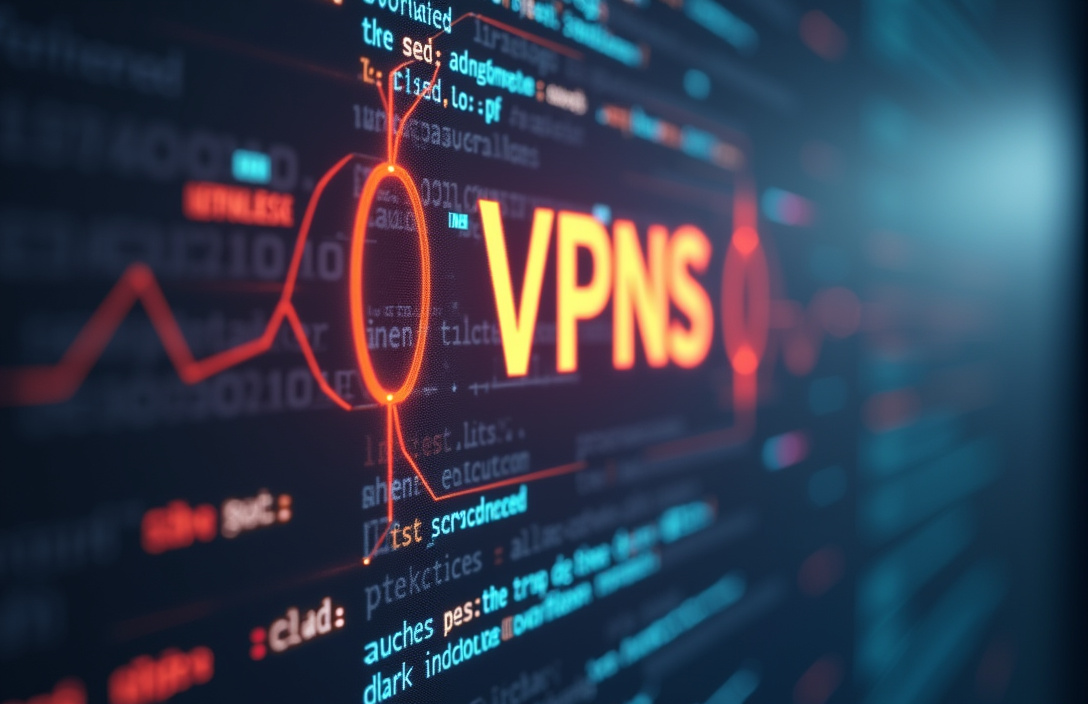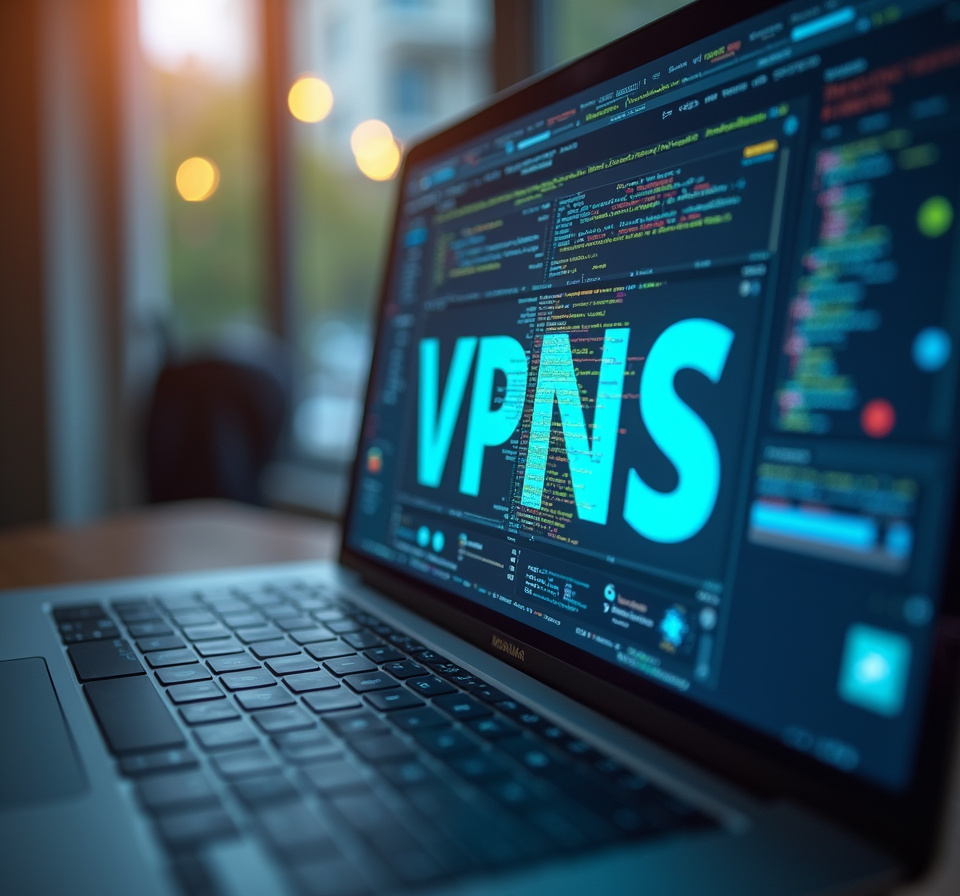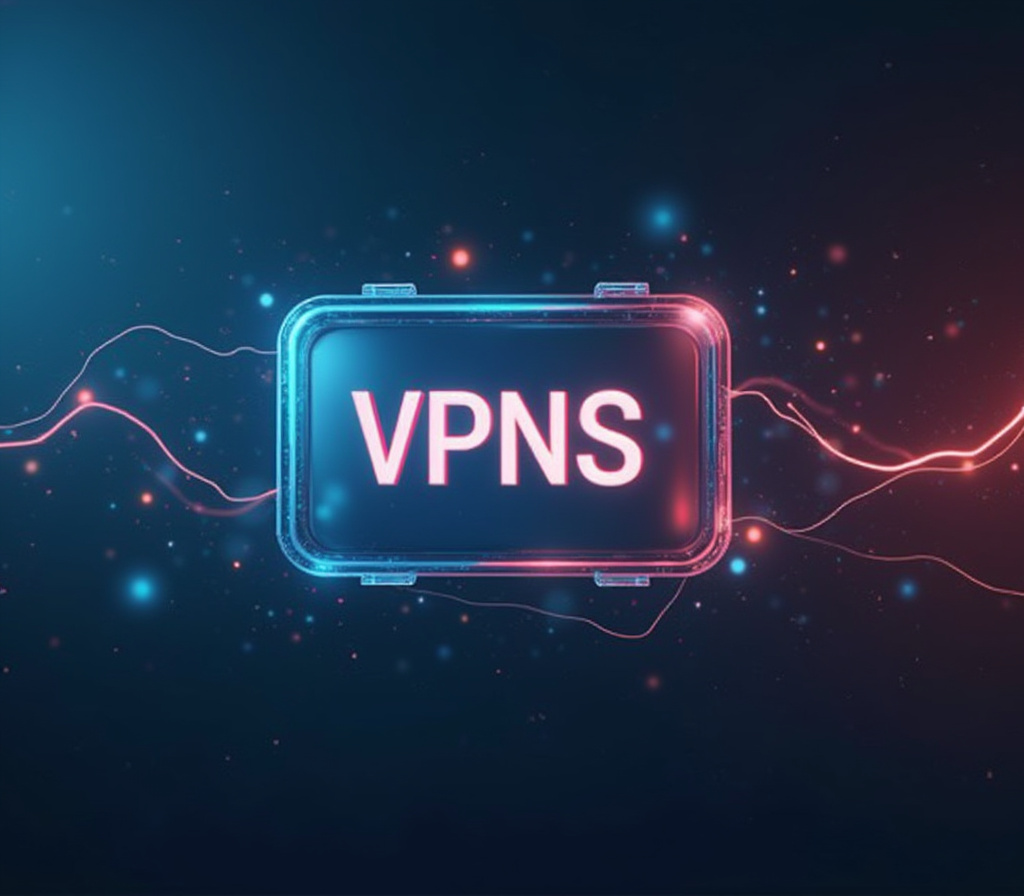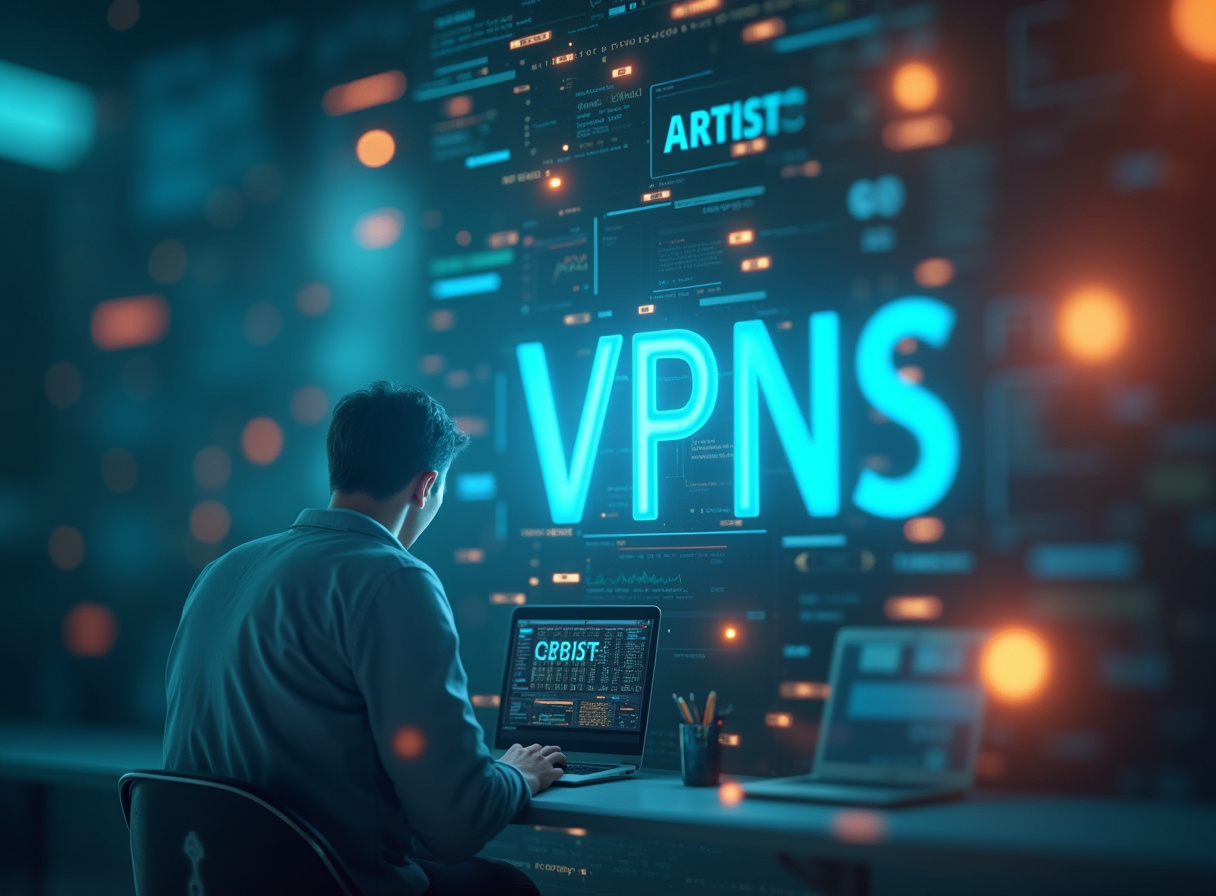VPNs for Freelance Illustrators: Protecting Art Portfolios
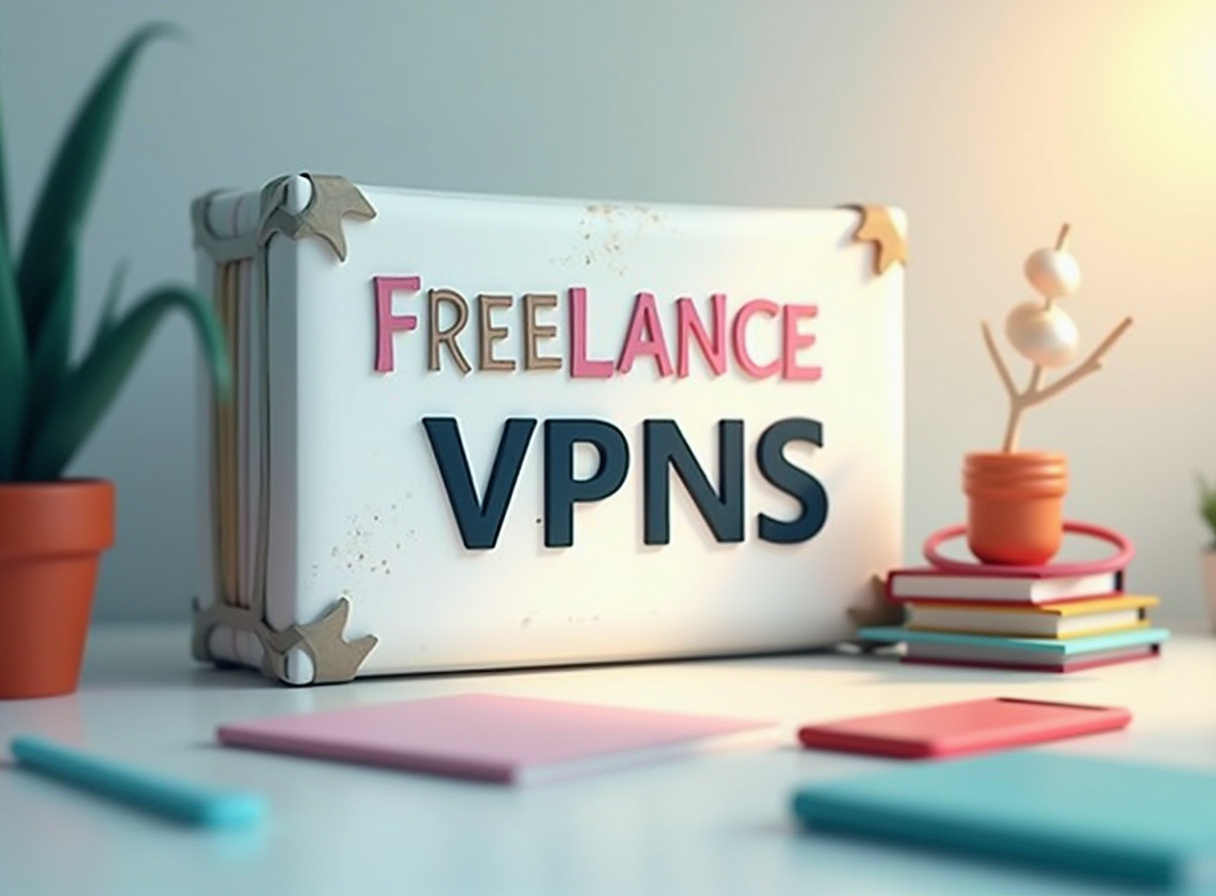
Table of Contents
Securing the Digital Canvas: Why Illustrators Need VPNs
The digital canvas has ushered in a golden age for freelance illustrators, affording them unprecedented opportunities to showcase their creative work, connect with clients across continents, and build thriving businesses. However, this digital renaissance comes with its own set of challenges. The very nature of the internet, with its interconnected networks and vast reach, also presents a fertile ground for cyber threats.
These threats range from simple copyright infringement to sophisticated data breaches aimed at stealing intellectual property and disrupting client relationships. In this environment, freelance illustrators must prioritize the protection of their art portfolios, secure their client gigs, and safeguard their creative assets. A Virtual Private Network (VPN) emerges not just as a desirable tool, but as an indispensable component of their professional toolkit.
By establishing a secure, encrypted connection, a VPN acts as a digital shield, masking online activity, guarding against unauthorized access, and providing a crucial layer of defense against a myriad of cyber risks. This article is designed to illuminate the critical importance of VPNs specifically tailored for freelance illustrators, providing practical insights into how these tools can fortify their defenses, bolster client confidence, and ultimately empower them to flourish in the increasingly competitive and complex landscape of digital art. We'll delve into the specific vulnerabilities faced by illustrators, exploring the precise ways a VPN addresses each weakness, ensuring that their creative vision remains safe and their professional reputation remains untarnished.
The creative process itself is inherently vulnerable in the digital realm. From initial sketches to final renderings, every stage of an illustration project can be susceptible to interception or theft. Illustrators often collaborate with clients using online platforms, exchanging sensitive files, providing feedback, and managing project details.
These interactions, while essential for a successful partnership, also create potential entry points for malicious actors seeking to gain access to confidential information. Furthermore, the very act of showcasing an art portfolio online opens up the possibility of copyright infringement, where unscrupulous individuals may copy, distribute, or even claim ownership of an illustrator's original work. A VPN effectively mitigates these risks by encrypting all data transmitted between the illustrator's device and the internet.
This encryption transforms sensitive information into an unreadable code, rendering it useless to anyone who might attempt to intercept it. It's akin to sending a message in a secret language, ensuring that only the intended recipient can decipher its meaning. Beyond encryption, a VPN also masks the illustrator's IP address, which acts as a unique identifier that can be used to track their online activity and pinpoint their geographic location.
By cloaking their IP address, a VPN provides a layer of anonymity, making it significantly more difficult for cybercriminals to target them. This anonymity is particularly crucial for illustrators operating in regions with strict internet censorship or those who wish to protect their personal privacy from prying eyes. In essence, a VPN acts as a gatekeeper, controlling access to an illustrator's online presence and ensuring that their creative work remains safe from prying eyes and unauthorized use.
The decision to invest in a robust VPN is not merely a matter of convenience; it's a strategic investment in the long-term security and sustainability of an illustrator's career. It’s a testament to their commitment to protecting their intellectual property, fostering client trust, and ensuring that their creative vision remains uncompromised in the ever-evolving digital landscape. The peace of mind that comes with knowing their work is secured allows them to focus on their art, leading to more client satisfaction and improving business.
To be completed
At the heart of every freelance illustrator's professional identity lies their art portfolio. More than just a collection of images, it represents years of dedicated practice, countless hours of honing skills, and the unique creative vision that sets them apart. This portfolio serves as a crucial tool for attracting new clients, showcasing their abilities, and ultimately securing lucrative gigs.
However, in the digital age, this vital asset is constantly under threat. Online portfolios are inherently vulnerable to a range of security risks, including unauthorized access, copyright infringement, and outright theft. Without robust protection, an illustrator's hard-earned creations can be easily copied, distributed, or even worse, claimed as someone else's original work.
This not only devalues their intellectual property but can also severely damage their reputation and future earning potential. A VPN provides a critical and multi-faceted layer of protection designed specifically to safeguard art portfolio security. First and foremost, a VPN encrypts all internet traffic flowing to and from the illustrator's device, creating a secure tunnel that shields sensitive data from prying eyes.
This encryption process scrambles the data, effectively rendering it unreadable to anyone who might attempt to intercept it. Imagine it as a digital cloak of invisibility, making it virtually impossible for hackers or eavesdroppers to gain access to the portfolio's hosting server or steal valuable image files. Beyond encryption, a VPN also masks the illustrator's real IP address, replacing it with one from a server in a different location.
This masking provides an additional layer of anonymity, making it significantly more difficult for malicious actors to track their online activity or identify their physical location. This is particularly beneficial for illustrators who work in regions where internet censorship is prevalent or who simply value their online privacy. By hiding their IP address, they can browse the web more freely, access restricted content, and reduce the risk of being targeted by cybercriminals.
The ability to bypass geographical restrictions also opens up new opportunities for illustrators to access resources and collaborate with clients from around the world. For instance, they can connect to a VPN server in a country where a particular software or font is licensed, allowing them to use it without violating copyright laws. Moreover, a VPN can protect against Distributed Denial of Service (DDoS) attacks, which are often used by malicious actors to overwhelm websites and make them inaccessible.
By masking the illustrator's IP address, a VPN makes it more difficult for attackers to target their online portfolio with a DDoS attack. This ensures that their portfolio remains accessible to potential clients, even during periods of heightened cyber activity. In addition to these technical safeguards, using a VPN also sends a clear message to clients that the illustrator takes security seriously.
It demonstrates a commitment to protecting their creative assets and ensuring that all communication and data transfers are conducted in a secure and confidential manner. This can be a significant competitive advantage, especially when working with clients who handle sensitive information or operate in highly regulated industries. By investing in a reliable VPN, freelance illustrators can protect their art portfolios, maintain control over their intellectual property, and project a professional image of security and trustworthiness.
The benefits of using a VPN far outweigh the cost, making it an essential and non-negotiable tool for any illustrator who wants to thrive in the digital age.
To be completed
Securing client gigs is the lifeblood of any freelance illustrator's career. These projects not only provide financial stability but also offer opportunities for creative growth, network expansion, and the chance to build a strong professional reputation. However, client gigs often involve the exchange of sensitive information, ranging from confidential project details and proprietary sketches to financial agreements and personal contact information.
This constant flow of data creates numerous vulnerabilities that can be exploited by malicious actors, leading to data breaches, intellectual property theft, contract disputes, and reputational damage. A VPN serves as a crucial shield, providing comprehensive client gigs protection by establishing a secure and encrypted channel for all communication and data transfer. It ensures that sensitive information remains confidential and protected from unauthorized access, allowing freelance illustrators to collaborate with clients with confidence and peace of mind.
At its core, a VPN encrypts all data transmitted between the illustrator's device and the client's server, transforming it into an unreadable code that is virtually impossible to decipher. This encryption process protects sensitive information from interception by hackers, eavesdroppers, or even unscrupulous competitors who might be seeking to gain an unfair advantage. Whether it's sending preliminary sketches, discussing project requirements, or sharing financial details, a VPN ensures that all communication remains private and secure.
In addition to encryption, a VPN also masks the illustrator's IP address, providing an added layer of anonymity and preventing malicious actors from tracking their online activity or identifying their physical location. This is particularly important when working with clients who require strict confidentiality or operate in highly regulated industries, where data breaches can have severe legal and financial consequences. A VPN allows freelance illustrators to meet these security requirements and demonstrate their commitment to protecting client data.
Furthermore, a VPN can protect against man-in-the-middle attacks, where hackers intercept communication between the illustrator and the client, posing as one of the parties to steal sensitive information. By encrypting all data, a VPN makes it much more difficult for attackers to carry out these attacks. This provides an extra layer of security, ensuring that communication remains secure and confidential.
Beyond the technical safeguards, using a VPN also fosters trust between the illustrator and the client. It demonstrates a commitment to security and professionalism, which can be a significant competitive advantage in the freelance market. Clients are more likely to trust illustrators who take steps to protect their data and maintain their privacy.
A freelance illustrator can even incorporate the use of a VPN into their client contracts as a standard security measure. This demonstrates their commitment to protecting client data and provides assurance that all communication and data transfer will be conducted in a secure and confidential manner. By providing detailed service information and the security protocols used the illustrative artist is also able to educate clients on potential vulnerabilities clients expose artist to and may encourage client to be pro-active in their protection.
A VPN allows freelance illustrators to prioritize client gigs protection, maintain a professional reputation, and build strong, long-lasting relationships with their clients. Integrating a VPN into their workflow is a strategic investment in the security and success of their freelance business. It demonstrates a commitment to professionalism, instills confidence in clients, and ensures that sensitive information remains protected from unauthorized access or disclosure.
VPNs for services
While the core benefit of a VPN for freelance illustrators lies in its security capabilities, its usefulness extends far beyond simple protection against cyber threats. A VPN unlocks a range of additional advantages that can significantly enhance their creative workflow, improve their overall online experience, and even open up new opportunities for growth and collaboration. These benefits, often overlooked, can be just as valuable as the security features, making a VPN a truly versatile and essential tool for any modern illustrator.
One of the most significant advantages is the ability to bypass geographical restrictions and access content that may be unavailable in their specific region. Many software programs, font libraries, or stock image websites impose licensing restrictions that limit access based on location. This can be incredibly frustrating for illustrators who need to use specific tools or resources that are only available in certain countries.
By connecting to a VPN server in the appropriate location, they can effectively circumvent these restrictions and gain access to the resources they need to complete their projects. Imagine, for instance, an illustrator who needs to use a particular font that is only licensed in the United States. By connecting to a VPN server in the US, they can effectively mask their real location and appear to be browsing from within the country, granting them access to the font without violating any licensing agreements.
This ability to bypass geographical restrictions can also be useful for illustrators who want to collaborate with clients from around the world. By connecting to a VPN server in the client's location, they can test their website load speeds, ensure that their work is accessible in that region, and even gain insights into local design trends and preferences. Another often-underestimated benefit of using a VPN is the potential to improve internet speed and reduce latency.
While this may seem counterintuitive, some VPNs offer specialized servers that are optimized for speed and performance, ensuring a smoother and more consistent online experience. This can be particularly important for illustrators who rely on fast and stable internet connections for uploading large files, participating in video conferences, or collaborating with clients in real-time. A high-quality VPN can connect to servers that reduce speed-related challenges to working on these projects.
Furthermore, for freelance illustrators who frequently work while traveling, a VPN is an absolute necessity. Public Wi-Fi networks, commonly found in coffee shops, airports, and hotels, are notoriously unsecured and vulnerable to hacking. These networks often lack proper encryption, making it easy for malicious actors to intercept data transmitted over the connection.
By connecting to a VPN before using public Wi-Fi, illustrators can protect their sensitive data and maintain their privacy while working on the go. The VPN encrypts all data transmitted over the public network, preventing hackers from accessing their usernames, passwords, credit card details, or any other sensitive information. In addition to these practical benefits, a VPN can also help freelance illustrators manage their online reputation and protect themselves from cyberbullying or online harassment.
By masking their IP address and encrypting their online activity, they can minimize the risk of being tracked or targeted by malicious actors. This is particularly important in today's digital climate, where online harassment is becoming increasingly prevalent. A VPN is a necessary tool to provide added safety and anonymity while online.
Essentially, VPNs provide freelance illustrators with a versatile toolkit that extends far beyond security alone. By bypassing geographical restrictions, improving internet speed, securing public Wi-Fi connections, and protecting their online reputation, a VPN can significantly enhance their creative workflow and improve their overall online experience.
In conclusion, the digital landscape presents both unparalleled opportunities and significant challenges for freelance illustrators. While the internet has democratized access to clients, resources, and platforms for showcasing creative work, it has also created a fertile ground for cyber threats that can compromise art portfolio security, jeopardize client gigs, and undermine their professional reputations. In this environment, a VPN is no longer a luxury but a necessity, serving as a vital tool for protecting their intellectual property, securing client communications, and ensuring their continued success in the digital age.
A VPN acts as a multi-layered shield, providing encryption, IP address masking, and a range of other features that safeguard their online activity and protect them from a myriad of cyber risks. By encrypting all data transmitted between their devices and the internet, a VPN prevents unauthorized access, intercepts by hackers, and eavesdropping by malicious actors. This encryption ensures that sensitive information, such as confidential project details, proprietary sketches, and financial agreements, remains private and secure.
Beyond security, VPNs offer freelance illustrators a range of additional benefits that can enhance their creative workflow and improve their overall online experience. The ability to bypass geographical restrictions, improve internet speed, and secure public Wi-Fi connections are just a few examples of how a VPN can streamline their work and open up new opportunities for collaboration and growth. When choosing a VPN, freelance illustrators should prioritize features that are most relevant to their specific needs and requirements.
Look for VPNs with strong encryption protocols, a wide range of server locations, a strict no-logs policy, and fast connection speeds. It’s also important to consider the user-friendliness of the VPN and whether it offers customer support in case of technical issues. Consider VPNs that can be used across multiple platforms, allowing illustrators to use them on desktop computers, laptops, smartphones, and tablets.
This ensures that their online activity is protected regardless of the device they are using. Beyond the technical aspects, freelance illustrators should also integrate the use of a VPN into their overall security practices. This includes using strong passwords, enabling two-factor authentication, updating software regularly, and being cautious about suspicious emails or links.
By combining a VPN with these other safeguards, illustrators can create a robust defense against cyber threats and protect their creative assets. Educating clients about security best practices is also crucial. Encourage them to use secure communication channels, implement strong passwords, and be cautious about sharing sensitive information.
By working together, illustrators and their clients can create a secure environment for collaboration and protect their shared interests. In the competitive freelance market, prioritizing security is not just a matter of prudence, it’s a strategic investment that can set illustrators apart from the crowd. By demonstrating a commitment to protecting client data and maintaining a secure online presence, they can build trust, attract new clients, and establish long-lasting relationships.
It is important for the illustrator to remember to keep their VPN software and subscriptions up to date with the latest versions to ensure they are receiving the best-in-class security coverage. Moreover, freelance illustrators should stay informed about the latest cyber threats and security best practices. By continuously learning and adapting to the changing threat landscape, they can stay ahead of the curve and protect their businesses from future risks.
The use of a VPN coupled with security best practices ensures that the illustrator maintains control of their intellectual property. In conclusion, the world of an illustrator relies on creating art, a VPN helps secure their business, and client relationships.
Stay Updated
Get the latest VPN news, tips, and exclusive deals to your inbox.
